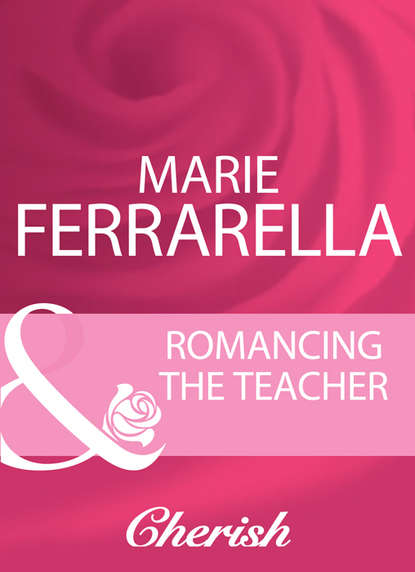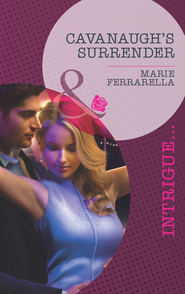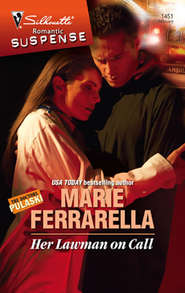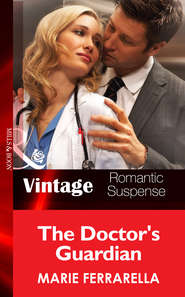По всем вопросам обращайтесь на: info@litportal.ru
(©) 2003-2025.
✖
Romancing The Teacher
Автор
Год написания книги
2018
Настройки чтения
Размер шрифта
Высота строк
Поля
The officer straightened up, one hand braced against his spine as he examined the wreckage. His car was a mangled scrap of machinery intimately locked in an eternal waltz with the bark of a coral tree.
The officer took off his hat and scratched his balding head.
“You’d think a man who could afford a fine machine like that would have more sense than to go driving around with Johnnie Walker as a companion.”
But bottles of Johnnie Walker were far in Ian’s past. That had been his grandfather’s poison of choice, not his.
“It was vodka, not whiskey,” Ian corrected hoarsely. “And definitely not enough to get me in this state.” That had been the fault of his medication, he thought. Maybe he’d been a little careless, taking too much because of what day it was. These days, they had a medicine for everything. Everything but the guilt that came with each breath he took.
Because he could take a breath. And they couldn’t. Not for a very long time.
With effort, Ian pulled his elbows in against his body and propped himself into a semi-upright position on the lawn.
It wasn’t easy. The world around him alternated between pitch black and a fragmented cacophony of colors that swirled around his aching head. He didn’t know which he disliked more, the colors or the darkness. All he knew was that both made him incredibly dizzy.
Gingerly, he touched his fingers to his forehead and felt something thick and sticky. Dropping his hand back down to eye level, he looked at it and saw blood.
Blood.
Brenda, don’t die. Please don’t die! Don’t leave me here. Please!
The terrified high-pitched voice—his voice—echoed in his brain, taunting him. Reminding him.
Through sheer willpower, Ian managed to block it out.
The way he always did.
Until the next time.
Ian raised his head and looked up at the officer. The man’s dark blue shirt was straining against his girth. The third button from the top was about to pop, he noted vaguely.
Ever so slowly, the rest of his surroundings came into focus. And the chain of events that brought him here. Ian remembered the drive through the deserted campus back roads. He’d taken the route on purpose, lucid enough despite his grief and the inebriating mixture in his system, not to want to hurt anyone.
Except for himself.
A surge in his brain had him calling the sudden turn that sent him skidding. And the oncoming tree that had appeared out of nowhere.
He remembered nothing after that.
Dampness penetrated his consciousness as well as his trousers. Dew. What time was it? Three a.m.? Later? He didn’t know.
Ian scrubbed his hand over his face and winced as vivid pain swirled through him like a club covered in cacti spines. A thousand points along his body hurt at once.
“You pull me out?” he asked the policeman.
“Not me. You were out when I got here. Maybe you crawled out.”
A thin smile touched the policeman’s lips. “Looks like some part of you still wants to go on living.”
A dry, humorless laugh melded with the night noises around Ian. Nearby there was the sound of something rustling in the ground cover, as if a possum was scurrying away from the scene of the crime.
That’s right, run. Run for your life. I’d run with you if I could.
“News to me,” Ian muttered. He never wished for life, not for himself. For the others. For them he’d prayed, until he’d realized that the prayers came too late. That they were dead even as he laid there next to them, pinned down and helpless.
Hands splayed on the ground on either side of him, Ian attempted to push himself up to his feet. Every bone in his body screamed in protest, telling him to lay back down.
“Why don’t you just stay put?” It wasn’t a suggestion coming from the officer, but an order. “I’m going to call this in and get another squad car on the scene.”
Because his limbs were made out of recycled gelatin, Ian remained where he was.
“Reinforcements?” A cynical smile curved his mouth. He never thought of himself as dangerous, although Ryan had once described him that way. But then, his publicist was afraid of his own shadow. “Why? I promise not to resist arrest.” He couldn’t even if he wanted to, Ian thought.
“You sound pretty coherent for a drunk,” Officer Holtz commented.
“Practice,” Ian replied. In truth, there were more pills in him than alcohol, and maybe he was a little dangerous. Reckless even. Most nights—because nights were when it was the hardest—he could keep a lid on it, could go on. But tonight the pain had won and all he wanted to do was still it. Make it stop.
But it was still there. The physical pain would go away. This never did, no matter what face he showed to the world.
There was a street lamp not too far away and Ian could make out the officer more clearly now. His face was redder than it had been a moment ago.
“Think you’re immortal?” the officer jeered.
“I’m really hoping not.” His voice was so calm, Ian could see that he had rattled the man.
“Wipe that damn smile off your face,” Officer Holtz ordered. “Calling this in is procedure.”
Ian gave up attempting to stand. He needed to wait until his limbs could support him. Or maybe until his head stopped bleeding.
Very gingerly, Ian laid back on the damp grass, his head spinning madly like a top off its axis. Oblivion poked long, scratchy black fingers out of the darkness to grab hold of him.
Ian laughed shortly. “Wouldn’t want to mess with procedure.”
It was the last thing he said before the abyss swallowed him up.
“What the hell were you thinking?”
Marcus Wyman’s question reverberated about the small, clean square room within the police station where lawyers were allowed to talk to their clients in private. Anger swelled in his voice and glowed in his small, brown eyes as he regarded his client and friend.
Ten feet away, on the other side of the door, a guard stood at the ready, waiting for the minutes of their allotted time to be over.
Ian leaned back in his chair, tottering slightly on the two back legs. He sat on the far end of the rectangular table. His face was turned from his lawyer as he stared out the window.
That side of the building overlooked a large parking lot that was landscaped with ficus trees that some gardener had shaped like beach umbrellas, an example of city life attempting to appear rustic. City life would win out in the end.
The bad always ate the good, Ian mused, detached.
When he finally responded to Marcus, he sounded oddly hollow. “As a matter of fact, I was trying not to think.”











